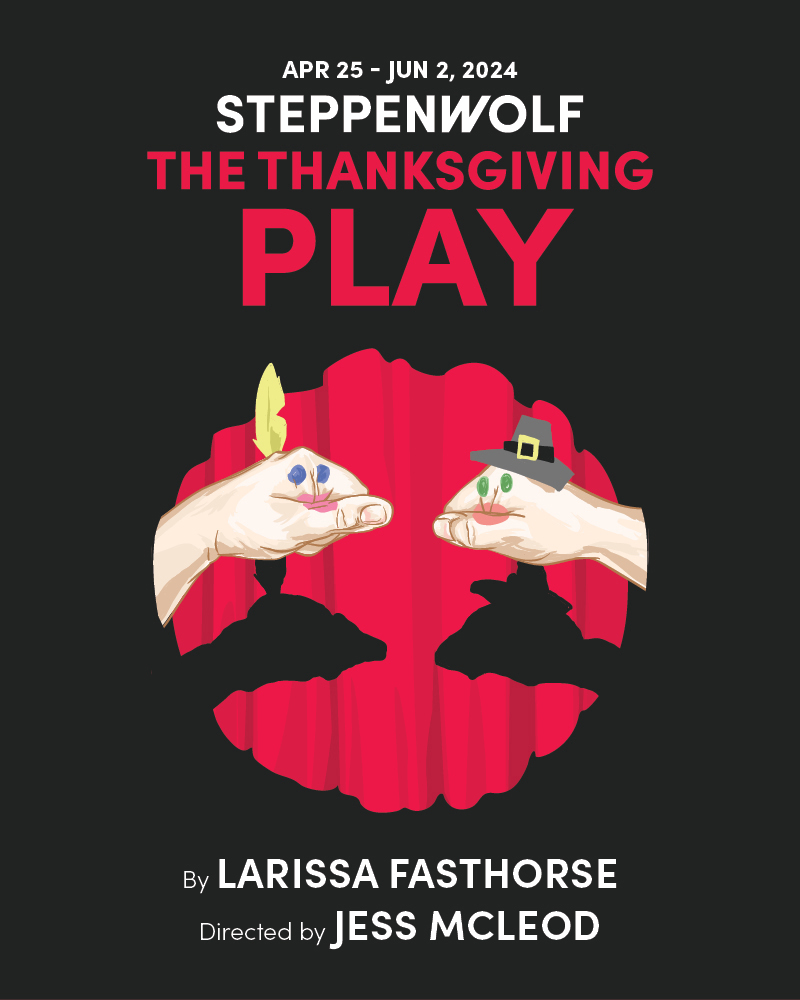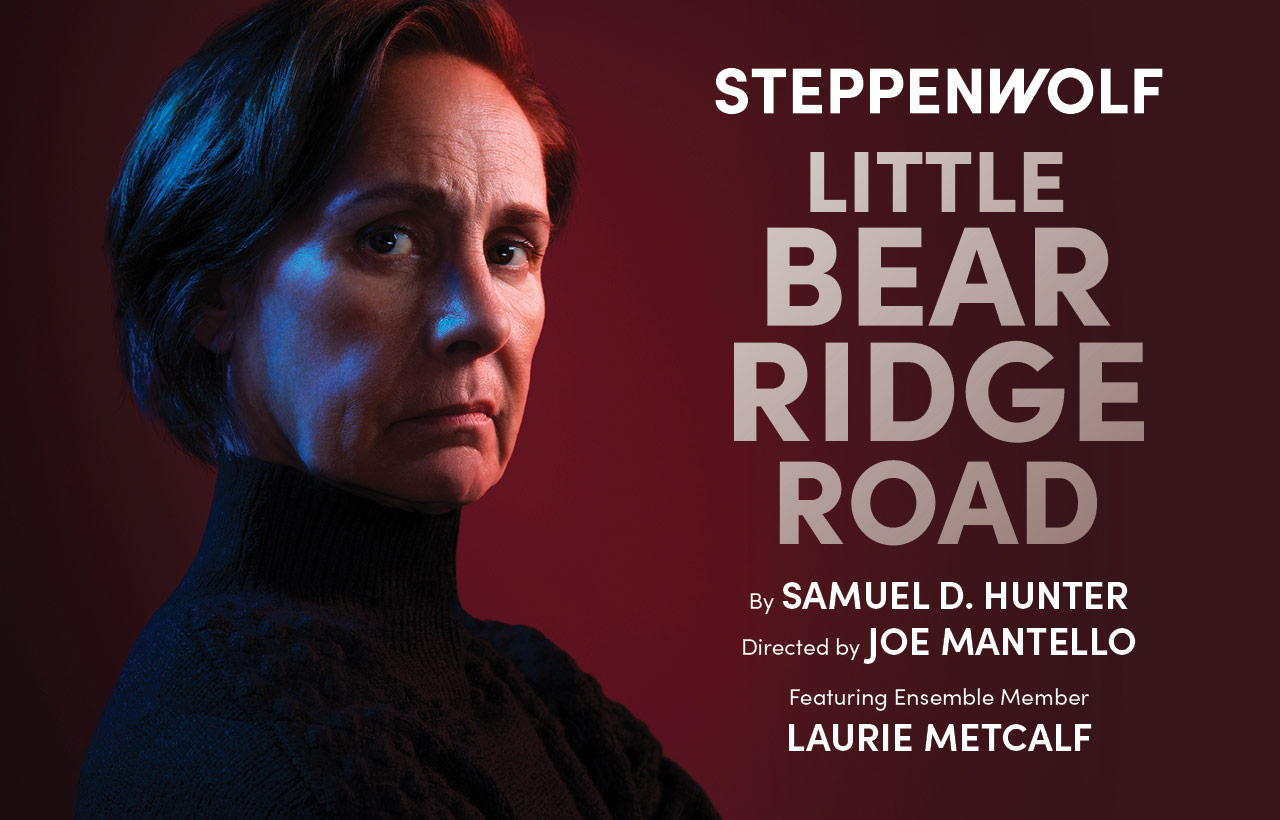
If you have ever worked as part of a team with a common goal—whether in a corporate, social or artistic setting—you may be familiar with the absolute quandary of trying to “do the right thing” in an environment filled with minefields, inequities and insecurities. But is there a latent danger behind the efforts of those who simply want to make the world a better place through their work? What truths have been erased—and continue to be erased—in the mad dash to “get it right” and avoid offending, well, anyone at all?
The brilliant playwright and MacArthur Fellow Larissa FastHorse has shared that The Thanksgiving Play, which she calls a “comedy within a satire,” was written, in part, out of a frustration that historically white institutions were not producing her plays that featured Indigenous characters. The story is that of four white theater people clumsily brought together to create a culturally sensitive Thanksgiving play for elementary school children. The often hilarious and frequently uncomfortable process that follows asks questions about American mythmaking, white guilt and gestures of good intentions.
When we first read this play, we laughed so hard it stung. The play balances skewering comedy and uncomfortable provocations, but it also asks for a high degree of self-recognition. We recognize that Steppenwolf fits the profile of the type of institution that inspired the play. Given this historical inadequacy, we’re incredibly grateful for Larissa trusting us with premiering this show in Chicago, for director Jess McLeod who has confidently mapped an honest journey for the characters in this play, and for the remarkable assembly of artists who have said “yes” to this project.
Steppenwolf, as a company built and led by artists, will always be interested in engaging in questions of the creative process: what makes theater artists tick, what allows an ensemble to come together to create something (hopefully) extraordinary?
But we are also confident that the foibles of the characters of The Thanksgiving Play will be relatable to anyone (regardless of profession, identity or lived experience) who has been placed in a situation where they didn’t have the exact knowledge or vocabulary to gracefully navigate challenging conversations about ethics and social responsibility. The characters in this play are not to be looked down upon; there is humanity and dignity in their pursuit of responsible artmaking. That they might fail to get it right is not a condemnation; it is reality.
Prepare yourself—this play is a shocking ride. But don’t forget to laugh too. Because if we aren’t vulnerable enough to laugh at ourselves, then how can we dare to look in a mirror?
Audrey Francis and Glenn Davis
Artistic Directors
How many plays written by a Native playwright have you been to? I know that’s a jarring statement to begin with, but stay with me.
I bet for many reading this, the answer is less than five. But that’s alright! Welcome to the wonderful world of Native Theatre. Glad to have you here. If you’ve been here before, welcome back, what took you so long to visit us again?
Storytelling is part of many Native peoples’ traditions. Our stories tell us about our world and show the best and worst of ourselves. When it comes to Native stories on the American stage, the general public either, A) Don’t know any, or B) Imagine stories of trauma. When Native plays first began to pop up, they were stories of sadness. This is the unfortunate result of being othered on stage and screen. Too long Natives were: the butt of a joke, villains who attack pioneers, or “Indian Princesses” i.e. Tiger Lily. Native playwrights had to do the work of humanizing us and our struggles for a wider audience. The fastest way to do that? Show our trauma.
Which is understandable, because of the whole “American history/manifest destiny” of it all.
But we have entered a new era in Native Theatre. The way paved by our playwriting ancestors. Our plays show our humanity, yes, but also the wide range of life. There is no one way to show Native identity on stage because we are not a monolith.
Larissa FastHorse has written a play about Natives without Natives on stage, and it is hilarious.
So, please come as you are. Live within the joy of the world that is being created on stage and don’t be scared to be who you are. Laugh at what you find funny, sit with uneasiness; engage with the play. And most importantly, enjoy!
Dillon Chitto
Mississippi Choctaw, Laguna/Isleta Pueblo
Cultural Consultant and Engagement Curator
for The Thanksgiving Play
STEPPENWOLF PRESENTS
THE THANKSGIVING PLAY
FEATURING
Audrey Francis†*, Tim Hopper†*, Paloma Nozicka, Nate Santana*
CREATIVE TEAM
Andrew Boyce+ Scenic Design
Raquel Adorno+ Costume Design
Keith Parham+ Lighting Design
Tosin Olufolabi+ Sound Design
R&D Choreography Violence Design
Jyreika Guest Intimacy Consultant
Kory Danielson Music Director
Dillon Chitto Engagement Curator and Cultural Consultant
Kate DeVore Vocal Coach
Patrick Zakem Creative Producer
Elise Hausken Production Manager
JC Clementz, CSA Casting
Christine D. Freeburg* Production Stage Manager
Kathleen Barrett* Assistant Stage Manager
† member of the Steppenwolf Theatre Company ensemble.
* member of Actors’ Equity Association, the union of professional actors and stage managers.
+ member of United Scenic Artists, Local 829 of the IATSE.
‡ member of Stage Directors and Choreographers Society, a national theatrical labor union.
This Theatre operates under an agreement between the League of Resident Theatres and Actors’ Equity Association, the Union of Professional Actors and Stage Managers in the United States.
Broadway Premiere Produced by Second Stage Theatre, New York, 2023
Carole Rothman, Artistic Director, Khady Kamara, Executive Director
Playwrights Horizons, Inc., New York City, produced the World Premiere of “THE THANKSGIVING PLAY” in 2018
THE THANKSGIVING PLAY was commissioned and originally produced by Artists Repertory Theatre Damaso Rodriguez, Artistic Director Sarah Horton, Managing Director Portland, Oregon
Not Your Mascot composed by Rick Sims is used by special arrangement with the composer.
CAST
Audrey Francis†* Logan
Tim Hopper†* Caden
Paloma Nozicka Alicia
Nate Santana* Jaxton
UNDERSTUDIES
Thomas J. Cox* Caden
Madelyn DePorter Alicia
Arash Fakhrabadi Jaxton
Andrea San Miguel* Logan
ADDITIONAL STAFF
Kaeli Meno Assistant Director
Jeanette Rodriguez Associate Costume Design
Josiah Croegaert Assistant Lighting Design
Navi Recording & Arrangement of 'Four Little Turkeys'
Andrea San Miguel Dance Captain
Emily Hanlon Production Assistant
Kyra Pan Stitcher
Melissa Perkins Shopper
Anna Wooden Crafts
Cindy Moon, Jeanette Rodriguez Additional Costume Shoppers
Josh Derby, Billy Earnesse, Kenny Faust Additional Carpenters
Amy Couey Interim Assistant Scenic Charge
Physical Therapy Services provided by Shirley Ryan AbilityLab
This play runs approximately 90 minutes with no intermission.
As a courtesy to the actors and your fellow patrons, please turn off your cell phones before the performance. The taking of photographs and the use of any type of recording device are not allowed in the theater during performances and is a violation of state and federal copyright laws; digital media will be deleted, and tape or film will be confiscated.
This production is recommended for audience members ages 10 and up.
- On stage June 13 - July 21
-
Ensemble Member Laurie Metcalf comes home to Steppenwolf to star in this comic, cosmic and intimate world premiere, penned by MacArthur Fellow Samuel D. Hunter and directed by Tony Award winner Joe Mantello.
- The strike of a match. A lit fuse. A race to the explosive finale. Welcome to Steppenwolf’s 2024/25 season, a collection of combustible stories just waiting for you, our audience, with one united message in mind: watch this.
- Members get it all! Experience the full season with added benefits, such as unlimited ticket exchanges, seating assignments before the general public and invitations to exclusive events.

